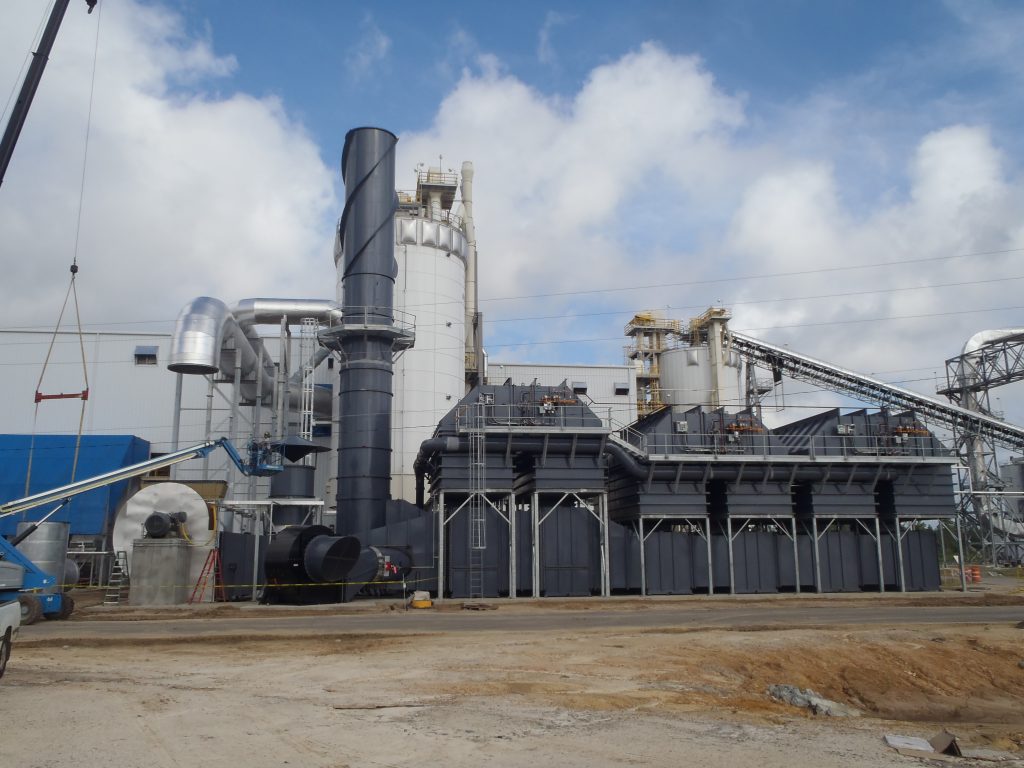Considering the impact that air quality standards have on your manufacturing processes isn’t something that can be avoided. As a manufacturer, ensuring compliance with air quality regulations is not only a legal requirement that protects public health but also a crucial factor in environmental sustainability and operational efficiency. In this article, let’s delve into the pivotal role of adhering to air quality standards and how GSM Industrial can be your strategic partner in achieving and surpassing these benchmarks.
The Significance of Air Quality Regulations for Manufacturers
The significance of EPA air quality regulations for manufacturers is substantial and multi-faceted, encompassing environmental, health, and economic considerations. These regulations are put in place by governmental bodies to control and limit the emissions of pollutants from industrial activities.
From an environmental perspective, adherence to EPA air quality standards plays a vital role in mitigating the impact of manufacturing processes on ecosystems, preserving biodiversity, and maintaining the overall ecological balance.
The health implications are equally profound, as cleaner air contributes to reduced respiratory illnesses and improved overall well-being for communities surrounding manufacturing facilities.
On the economic front, the enforcement of air quality regulations fosters innovation and the development of advanced technologies, creating a competitive landscape that encourages sustainable practices within the manufacturing sector.
What Are the Challenges Posed by Not Meeting These Standards?
Manufacturers grappling with air quality regulations often face challenges ranging from increased operational costs to reputational damage. Failure to meet air quality standards may necessitate costly retrofitting of facilities, implementation of new pollution control technologies, and investment in monitoring systems to track and manage emissions. These financial burdens can strain budgets, hinder investment in growth initiatives, and disrupt the overall financial stability of manufacturing operations.
Reputational damage is another challenge that looms as a substantial concern. In an era where environmental consciousness is paramount, public perception of a company’s commitment to sustainable practices significantly influences brand image. Non-compliance with air quality index standards can lead to negative publicity, erode consumer trust, and result in long-lasting damage to the company’s reputation.
How Can GSM Industrial’s Tailored Solutions Help?
Enter GSM Industrial, your ally in the quest for regulatory compliance and environmental responsibility. Specializing in effective air pollution control systems and filtration solutions, GSM Industrial offers cutting-edge solutions customized to meet the unique needs of your industry. These include:
- Air Pollution Control Equipment Design – For companies grappling with the decision to outsource manufacturing components of their air pollution control systems, it’s essential to consider a partner with expertise and experience in producing comparable systems. Our shop specializes in assisting Original Equipment Manufacturers (OEMs) in the production of comprehensive pollution control systems, offering a seamless and reliable solution to meet both environmental and regulatory needs.
- Dust Collector System Fabrication – The fabrication of dust collector systems stands as a crucial endeavor for ensuring a clean and safe working environment within a facility. These systems play a pivotal role in removing and collecting dust and other airborne particles, effectively purifying the air. The design and fabrication of a dust collector system are intricately linked to the specific needs of the facility it serves.
- Dust Collector System Types: Several technologies have emerged as key components in the fabrication of efficient dust collector systems. Baghouse systems utilize fabric filter bags to capture particulate matter, ensuring high filtration efficiency. The Hippo filter employs advanced filtration mechanisms to trap and collect dust particles effectively. The choice between these technologies depends on the specific needs and conditions of the facility, underlining the importance of a tailored approach in the design and fabrication of dust collector systems by GSM Industrial.
- Regenerative Thermal Oxidizer System Fabrication – Regenerative thermal oxidizers (RTOs) represent a fundamental form of pollution control equipment specifically designed to decompose volatile organic compounds (VOCs), hazardous air pollutants (HAPs), and other airborne solvents. This transformative process ensures that the emissions released into the atmosphere are significantly less harmful, contributing to a cleaner and safer working environment. Industries such as pharmaceuticals, food and beverage, chemical manufacturing, mining, and refractories find immense utility in RTO systems, benefitting from their capability to mitigate the environmental impact of industrial processes while adhering to stringent air quality standards.
Ensure Your Business Meets Air Quality Standards in 2024
For manufacturers seeking sustainable, regulatory-compliant strategies, the path forward involves integrating advanced technologies into existing processes. The primary consideration should be aligning these solutions with industry-specific needs.
GSM Industrial offers not just technology but a partnership geared towards your success. As you explore ways to enhance air quality compliance, consider the long-term benefits of proactive engagement with GSM Industrial. It’s not just about meeting standards. It’s about future-proofing your manufacturing operations.
Request a quote from GSM Industrial today. Explore how our expertise can transform your manufacturing processes, ensuring not just adherence to air quality standards but a future where your operations thrive in a sustainable, efficient manner. Contact GSM Industrial now and embark on a journey towards cleaner air and optimized manufacturing.

